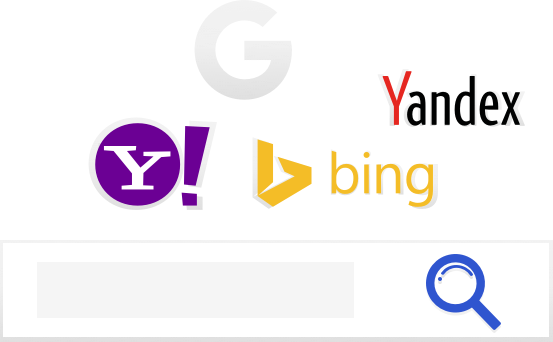If you are looking for a web hosting service for your website, you may have come across two common options: shared hosting and dedicated hosting. But what are the differences between them, and which one is better for your website needs and budget? In this article, we will compare the pros and cons of shared hosting vs dedicated hosting, and help you decide which one is the best option for you.
What is Shared Hosting?
Shared hosting is a type of web hosting service where multiple websites share the resources and space of a single server. This means that you share the server’s CPU, memory, disk space, and bandwidth with other users, and you have limited control over the server settings and configuration. Shared hosting is the cheapest and most common option, and it is suitable for beginners and small websites that have low to moderate traffic and requirements.
What is Dedicated Hosting?
Dedicated hosting is a type of web hosting service where you have exclusive access to a whole server for your website. This means that you have all the server’s resources and space for yourself, and you have full control over the server settings and configuration. Dedicated hosting is the most expensive and the most powerful option, and it is suitable for professionals and large websites that have high traffic and requirements.
The Pros and Cons of Shared Hosting
Shared hosting has some advantages and disadvantages, depending on your website needs and preferences. Here are some of the pros and cons of shared hosting:
Pros of Shared Hosting
- Affordable and easy to use: Shared hosting is the cheapest and most accessible option, as you can get a web hosting plan for as low as $3 per month. You also don’t need to worry about the technical aspects of running a server, as the web hosting provider takes care of the installation, maintenance, and updates for you.
- Sufficient for small websites: Shared hosting can provide enough resources and features for small websites that have low to moderate traffic and requirements. You can also choose from different web hosting plans and options, such as shared WordPress hosting or VPS hosting, which offer more dedicated resources and features than regular shared hosting.
- Compatible with most applications: Shared hosting can support most popular applications and software, such as WordPress, Joomla, Drupal, Magento, or PHP. You can also install and use various themes, plugins, and features to enhance and customize your website.
Cons of Shared Hosting
- Limited resources and performance: Shared hosting can limit your website’s resources and performance, as you share the server’s resources and space with other websites, which can affect your website speed and uptime. You may also experience fluctuations and inconsistencies in your website performance, depending on the demand and traffic of other websites on the server.
- Less security and privacy: Shared hosting can compromise your website’s security and privacy, as you share the server with potentially malicious or compromised websites, which can expose your website to hackers, malware, and other threats. You also have less control over the server’s security settings and policies, and you may not be able to install your own security software or firewall.
- Less flexibility and scalability: Shared hosting can restrict your website’s flexibility and scalability, as you have limited control over the server’s settings and configuration, and you may not be able to customize or optimize your website as you wish. You also have less room to grow and expand your website, as you may run out of resources and space on the server, and you may need to upgrade or switch to a different web hosting service.
The Pros and Cons of Dedicated Hosting
Dedicated hosting also has some advantages and disadvantages, depending on your website needs and preferences. Here are some of the pros and cons of dedicated hosting:
Pros of Dedicated Hosting
- Unlimited resources and performance: Dedicated hosting can provide unlimited resources and performance for your website, as you have all the server’s resources and space for yourself, and you don’t have to share them with other websites. You can also customize and optimize your server settings and configuration, and choose the best hardware and software for your website.
- More security and privacy: Dedicated hosting can provide more security and privacy for your website, as you have your own isolated environment, and you don’t have to share the server with potentially malicious or compromised websites. You can also install your own security software and firewall, and configure your own security rules and policies.
- More flexibility and scalability: Dedicated hosting can provide more flexibility and scalability for your website, as you have full control over the server settings and configuration, and you can customize and optimize your website as you wish. You also have more room to grow and expand your website, as you can easily scale up or down your server capacity, or switch to a different server, if needed.
Cons of Dedicated Hosting
- Expensive and complex: Dedicated hosting is the most expensive and complex option, as you can get a web hosting plan for as high as $300 per month. You also need to have the technical skills and knowledge to manage and maintain the server, as the web hosting provider only provides the hardware and network, and you are responsible for the installation, updates, and security of the server.
- Overkill for small websites: Dedicated hosting can be overkill for small websites that have low to moderate traffic and requirements. You may not need all the resources and features that dedicated hosting offers, and you may end up paying for more than what you use. You may also face challenges and difficulties in managing and maintaining the server, if you are not familiar with the technical aspects of running a server.
Conclusion
Shared hosting and dedicated hosting are two common options for web hosting services, and they have different pros and cons, depending on your website needs and budget. Shared hosting is the cheapest and most accessible option, but it also offers the least resources and features, and it is suitable for beginners and small websites. Dedicated hosting is the most expensive and the most powerful option, but it also offers the most resources and features, and it is suitable for professionals and large websites.
To decide which one is the best option for you, you need to consider various factors, such as your website goals, requirements, traffic, budget, and preferences. You can also compare the different web hosting plans and options, such as shared WordPress hosting, VPS hosting, or cloud hosting, which offer different levels of resources, features, and prices, and find the one that suits your website needs and budget.



Leave a Reply